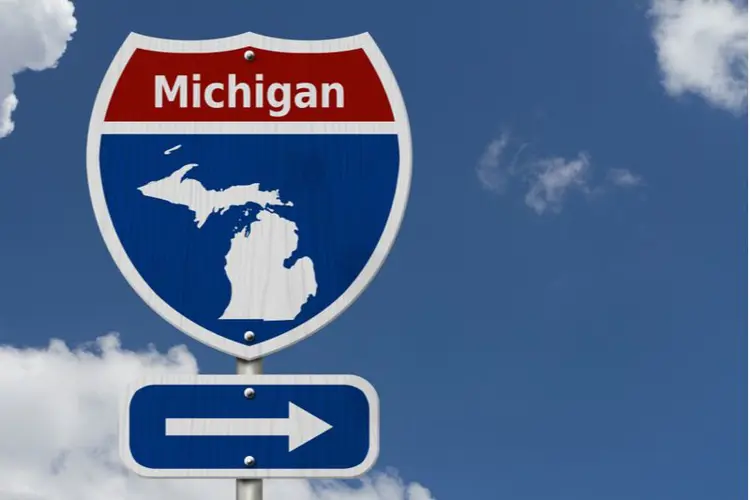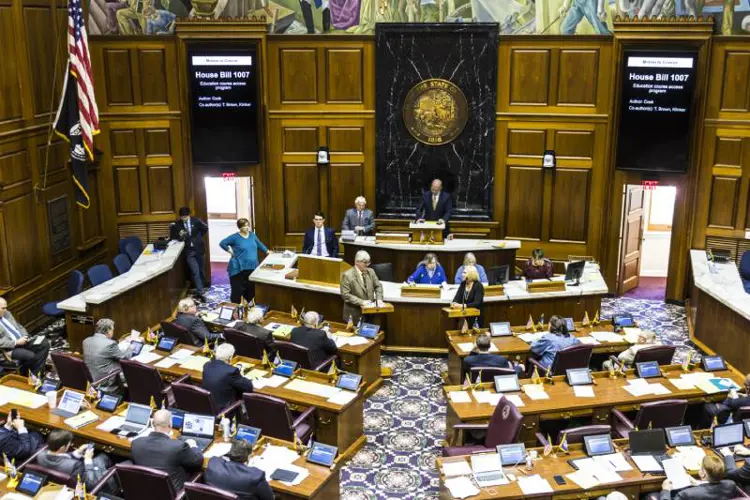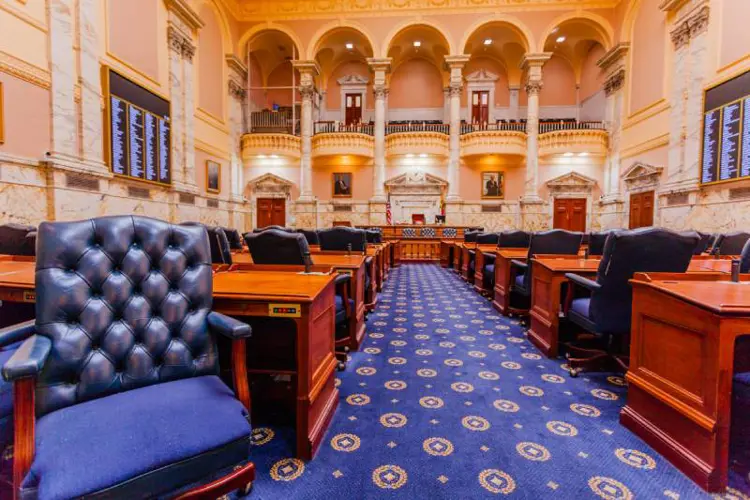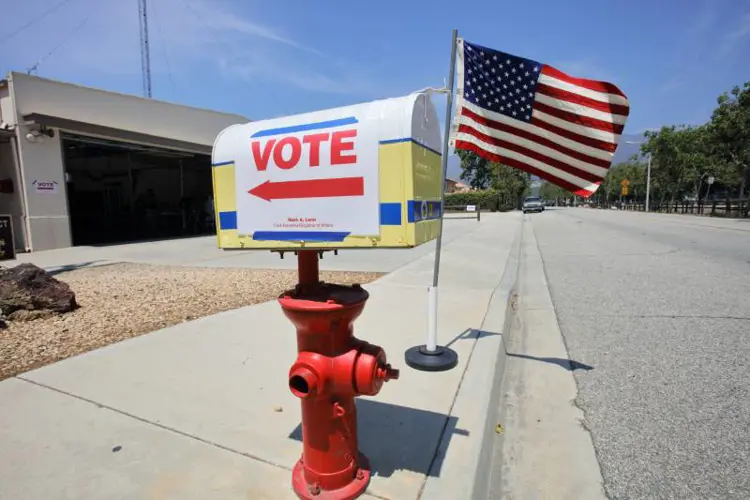There were several state ballot measures voted on Tuesday that affect some Vaping360 readers. And, although the overall election results were mixed for vapers, a couple of well-known anti-vapers lost their elections, which is good news.
Colorado and Oregon pass vape taxes
Both states combined vaping taxes with popular cigarette tax increases to ensure passage.
Colorado Proposition EE: a rising tax on nicotine vaping products
Colorado voters passed Proposition EE by a large margin. The ballot measure will create a new tax on nicotine-containing vapor products that mirrors the Colorado tax on non-cigarette tobacco products. The tax will begin at 30 percent of the manufacturer’s list price (MLP) in 2021, and rise gradually to 62 percent of MLP in 2027.
Prop EE will also incrementally increase cigarette taxes from the current 84 cents a pack to $2.64 in 2027, and increase the tax on cigars, pipe tobacco and smokeless tobacco from the current 40 percent of MLP to 62 percent in 2027.
Prop EE also provides competitive advantages for Marlboro manufacturer Altria, which may have been added to the legislation in exchange for a promise by the company not to oppose it.
Oregon Measure 108 taxes nicotine vaping products
Oregon voters passed Measure 108 by a wide margin. The law will tax nicotine “inhalant delivery systems” (nicotine vapes and heated tobacco products like IQOS) at 65 percent of the wholesale price. The tax covers hardware, and also applies to “components,” which includes e-liquid.
The new law will specifically exempt cannabis vaping products from the tax, along with any vaping product sold by a licensed cannabis dispensary. Measure 108 will also tax cigars at 65 percent (with a cap of $1.00 per cigar), and increase the cigarette tax from $1.33 to $3.33 a pack.
Cannabis legalization measures win across the board
Voters in four states approved legal recreational marijuana Tuesday, and two passed medical cannabis measures. When the new laws take effect, more than a third of the U.S. population—in 15 states— will live in a state with legal cannabis available to all adults. More than half of U.S. states have some kind of medical marijuana sales.
Despite the harsh partisan divide on almost all other issues, legal cannabis was popular among American voters from both left and right. Pro-cannabis measures passed from liberal northeast to conservative deep south and north central states. In addition to approving cannabis legalization, voters in Oregon and the District of Columbia said yes to laws allowing some use and possession of certain psychedelic drugs.
Arizona: the second time’s the charm
After rejecting cannabis legalization in 2018, Arizona voters approved it the second time around by a large margin. The law will legalize recreational cannabis sales and possession, mandate establishment of a legal market, issue 160 retail licenses (130 to existing medical dispensaries), and assess a 16 percent retail tax on all sales.
The act will allow possession of up to one ounce (28 grams) of cannabis products, with no more than five grams being concentrates. It also allows home cultivation of cannabis plants.
Mississippi: despite confusing choices, voters approved medical marijuana
Mississippi had two medical marijuana measures on the ballot, which seemed intended by the state legislature to purposely confuse voters. Opponents of the citizen petition-supported measure Initiative 65 approved a competing proposal through the legislature called Alternative 65A.
Both initiatives were listed on the ballot under Ballot Measure 1. A voter who wanted to select one of the initiatives first had to indicate “either” on their ballot, and then choose which of the competing initiatives they favored. According to Ballotpedia, a voter whose ballot indicated “either” but then failed to choose a specific initiative would have their entire ballot invalidated.
Alternative 65A, approved for the ballot by the Republican-dominated state legislature and supported by the state health department and anti-cannabis activists, was designed to make cannabis access as difficult as possible for medical use. The proposal would “restrict smoking marijuana to terminally ill patients; require pharmaceutical-grade marijuana products and treatment oversight by licensed physicians, nurses, and pharmacists.” (Pharmaceutical-grade cannabis products—which are rarely used by anyone—are already available with a prescription.)
In the end, Mississippi voters selected the more consumer-centric ballot initiative, Initiative 65, despite opposition by most public officials,including the governor.
The new law will allow medical marijuana treatment for 20 qualifying conditions and possession of up to 2.5 ounces of cannabis at a time, and taxes sales at the same seven percent rate as the state sales tax. It does not allow homegrown cannabis. The new law mandates that medical marijuana be provided through “licensed treatment centers” (dispensaries), which will be established by the state by Aug. 15, 2021
Montana: recreational legalization on the first try
Montana, which has had medical marijuana since 2004, easily passed recreational legalization, along with the companion bill that sets 21 as the age for legal cannabis purchases. Initiative 190 legalizes possession and use of marijuana for adults over 21, mandates a 20 percent tax on cannabis sales, and requires the state Department of Revenue to develop rules for the cannabis marketplace.
The new law requires product testing for potency and contaminants, and gives local municipalities the ability to regulate local cannabis businesses in their jurisdiction, according to Ballotpedia.
The law allows possession of up to one ounce of cannabis flower and up to eight grams of concentrates. Adult-use cannabis will be sold through dispensaries, and during the first year of the program existing medical dispensaries have the first chance at recreational licenses. Home cultivation is allowed, and the law also makes provisions for resentencing of individuals convicted of offenses that are no longer crimes, or having their convictions expunged.
New Jersey: recreational legalization, but the legislature will decide the rest
New Jersey voters have overwhelmingly approved legal recreational cannabis. The passage of Public Question 1 will add an amendment to the state constitution legalizing the use, sale, cultivation and processing of cannabis for recreational purposes by those 21 or older. It will give the state’s Cannabis Regulatory Commission authority over adult-use cannabis.
The state’s normal sales tax will be applied to adult-use cannabis, but the law prohibits the assessment of additional state sales taxes—a cannabis legalization oddity (most states lust after added pot taxes). It will, however, allow local governments to add an additional two percent sales tax.
Other than the taxes, Public Question 1 is disturbingly short on specifics. It will be up to the legislature and the Cannabis Regulatory Commission to determine the details, and that leaves a lot of room for a good proposal to get mucked up by New Jersey politicians.
The measure has provisions that will allow some people convicted of marijuana possession to have their records expunged. It also prevents discrimination by employers and landlords against people convicted of marijuana offenses.
South Dakota: medical and rec pot in the same election
South Dakota became the first state to approve medical and recreational cannabis legalization on the same day. Initiated Measure 26, the medical marijuana initiative, passed by a wide margin, while the recreational measure Constitutional Amendment A is passing by just a few points.
CA-A legalizes recreational use for people 21 and older, and allows possession or distribution of up to one ounce of marijuana (with no more than eight grams being in concentrate form). It also mandates that the state legislature pass a law creating a medical marijuana program by April 1, 2022. It assesses a 15 percent tax on cannabis sales.
The measure gives regulatory authority for recreational cannabis to the state Department of Revenue, and mandates that the agency make rules to implement the amendment. The revenue department will control licensing and set rules for health and safety. CA-A allows local jurisdictions to ban commercial growing, testing and sales. However, it allows home growing of up to three plants by individuals (and a total of six in any single home) in areas that have banned retail cannabis stores.
The medical marijuana measure, IM-26, will establish a cannabis treatment program for people with certain medical conditions certified by a licensed physician. It will allow cardholders to possess up to three ounces of marijuana, and gives the state Department of Health authority to set possession limits for other cannabis products.
The measure allows patients who are registered for home cultivation to grow three plants (or more if prescribed by a physician). Medical marijuana will not be taxed in South Dakota.
Some anti-vaping politicians are out of work
Montana's term-limited Democratic Governor Steve Bullock lost his bid for the U.S. Senate. Bullock was one of the governors who imposed an “emergency” flavor ban last fall—and tried to permanently ban flavors again this year via a health department rule.
Democratic U.S. Representative Donna Shalala (Florida 27th District) lost her race for re-election to Republican Maria Elvira Salazar. Shalala, a former Clinton cabinet member,was a leading supporter and co-sponsor of HR 2339, which passed the House in February. If approved in the Senate and signed by the President, the bill would ban flavored vaping products and online sales, impose FDA user fees on vaping manufacturers, order the FDA to regulate synthetic nicotine, and impose advertising restrictions on vaping products.
The Freemax REXA PRO and REXA SMART are highly advanced pod vapes, offering seemingly endless features, beautiful touchscreens, and new DUOMAX pods.
The OXVA XLIM Pro 2 DNA is powered by a custom-made Evolv DNA chipset, offering a Replay function and dry hit protection. Read our review to find out more.
The SKE Bar is a 2 mL replaceable pod vape with a 500 mAh battery, a 1.2-ohm mesh coil, and 35 flavors to choose from in 2% nicotine.
Because of declining cigarette sales, state governments in the U.S. and countries around the world are looking to vapor products as a new source of tax revenue.
The legal age to buy e-cigarettes and other vaping products varies around the world. The United States recently changed the legal minimum sales age to 21.
A list of vaping product flavor bans and online sales bans in the United States, and sales and possession bans in other countries.



















